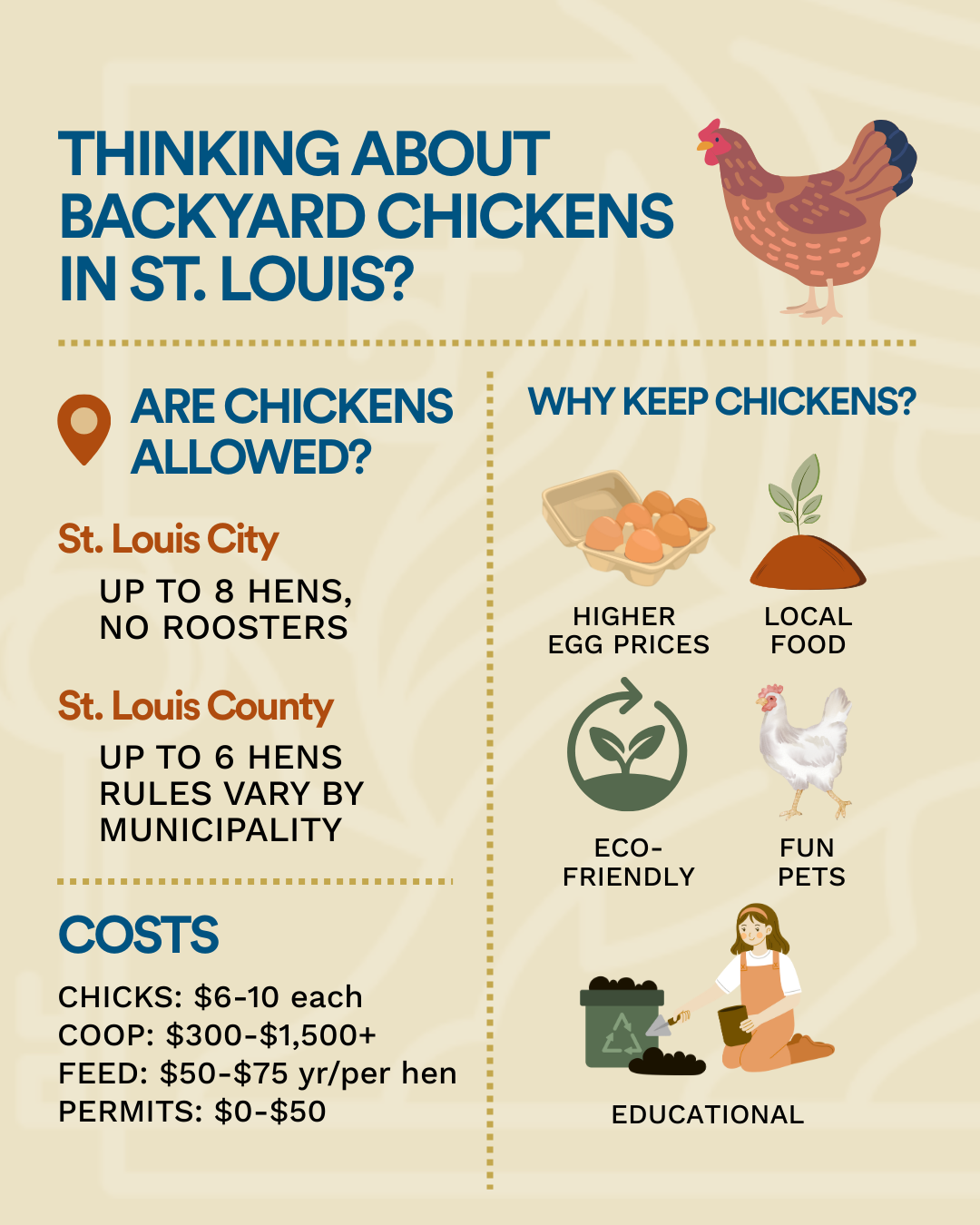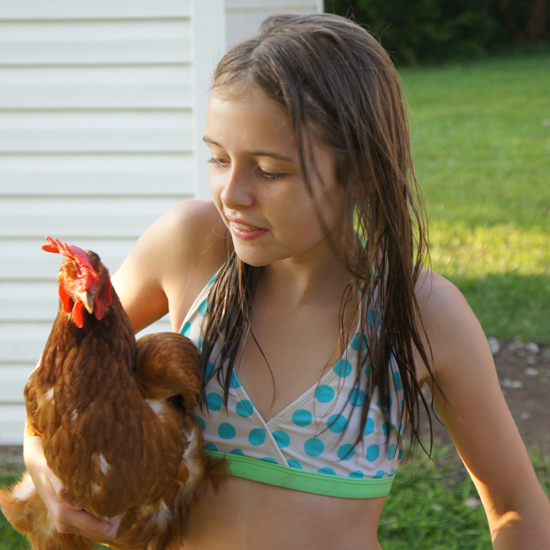Raising Chickens in St. Louis
Thinking About Backyard Chickens in St. Louis? With egg prices on the rise and interest in sustainable living growing, more St. Louisans are exploring backyard chicken keeping. Fresh eggs, compostable waste, and a connection to local food are enticing benefits. However, before you start building a coop, it’s important to understand the rules, responsibilities, and neighbor concerns that come with it.
Are Backyard Chickens Legal in St. Louis?
In most areas of St. Louis City and County, backyard hens are permitted, but regulations vary by location. With more than 90 municipalities in St. Louis County, many with their own rules and permitting processes for backyard chickens, it can be challenging to determine whether they’re allowed at your address and what steps you’ll need to take to comply.
St. Louis City
- Up to 8 hens allowed, no permit required
- Roosters are prohibited
- Coops must be clean, well-ventilated, and at least 25 feet from neighboring residences
St. Louis County
- A 2024 Missouri state law allows homeowners on lots of 0.2 acres or larger to keep up to 6 hens, even if their HOA rules say otherwise
- Rules for roosters and permit requirements vary by municipality
- The Easy Chicken website is a fantastic resource with links to the ordinances in several St. Louis County municipalities. Tip: Always confirm your local ordinances before moving forward.

Why Chickens Are Gaining Popularity
Nationally, more than 12 million U.S. households now keep chickens, up significantly from just a few years ago.
Key reasons for the increase:
- Egg prices have more than doubled in some areas due to inflation and supply chain disruptions.
- Families want more control over their food sources.
- Chickens fit into a larger movement toward urban homesteading and sustainability.
Benefits of Raising Chickens
- Fresh, high-quality eggs
- Reduced food waste through composting
- Educational and rewarding for families
- Connection to local food systems

Common Complaints From Neighbors—and How to Prevent Them
noise
Roosters are loud, which is why they’re banned in many places. Even hens can be noisy, especially when laying. SOLUTION: Avoid roosters, choose quieter breeds, and provide a comfortable environment to reduce stress.
Odor
Coops can smell if not cleaned regularly.
SOLUTION: Clean weekly, use pine shavings or sand for bedding, and compost manure properly.
Pests and Predators
Feed can attract raccoons, rats, and other animals.
SOLUTION: Store feed in sealed metal containers and secure the coop with hardware cloth instead of chicken wire.
Flies and Mess
Standing water and leftover scraps can draw insects.
SOLUTION: Keep bedding dry, clean waterers daily, and remove uneaten food.
Property Value Concerns
Some neighbors dislike the appearance of coops.
SOLUTION: Build an attractive, well-maintained coop, plant screening bushes, and keep the area tidy.
💡 PRO TIP: Let your neighbors know before you get chickens and occasionally share eggs to build goodwill.
Costs to Consider
Startup costs typically range from $500 to $1,000 or more, depending on your setup. Monthly maintenance costs are relatively low but require consistency.
- Chicks $6–$10 each
- Coop + run $300–$1,500+
- Feed $50–$75/year per hen
- Bedding & supplies $10–$30/month
- Permit (if required) $0–$50 annually
Is It Worth It?
Backyard chickens can be a fulfilling hobby, a step toward self-sufficiency, and a source of fresh food. They do, however, require daily care, attention to cleanliness, and consideration for neighbors.

Local Resources
- St. Louis Backyard Chickens (Facebook group) provides peer advice and community support.
- Missouri Coalition for the Environment (MCE)
- The Easy Chicken
- Your municipality’s website will list current chicken-keeping regulations.
Bottom Line
In St. Louis, backyard chickens are possible and rewarding, provided you follow the rules, maintain your coop, and keep your neighbors in mind. A little planning goes a long way toward a happy flock and a harmonious neighborhood.



